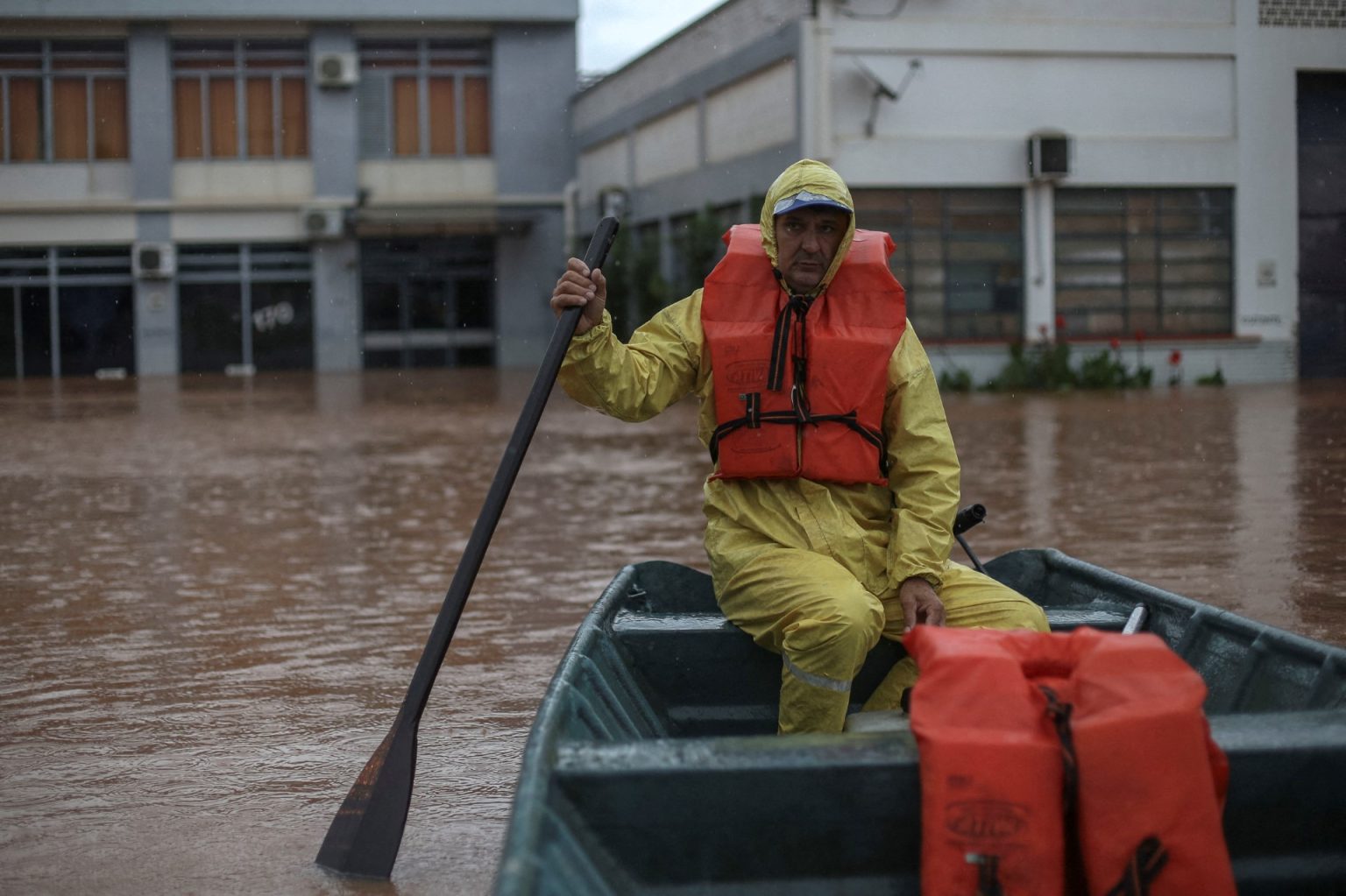The death toll from heavy rains in Brazil’s southern Rio Grande do Sul state has risen to 29, with at least 60 people still missing. The state’s civil defence agency has declared a state of emergency as rescuers continue to search for missing individuals among collapsed homes, bridges, and roads. Many families are trapped in their homes, with some forced to seek refuge on rooftops to escape rising waters. The storm damage has affected nearly 150 municipalities, injuring 36 people and displacing over 10,000.
Governor Eduardo Leite described the situation in Rio Grande do Sul as the worst disaster in the state’s history, with the number of fatalities expected to increase. In response to the crisis, Brazilian President Luiz Inacio Lula da Silva has promised to provide necessary resources to minimize the suffering caused by the extreme weather event. Federal authorities have already mobilized aircraft, vehicles, boats, and soldiers to assist with rescue efforts, clear roads, distribute essential supplies, and set up shelters.
Forecasts indicate that the state’s main Guaiba river, which has already overflowed in some areas, could rise to four meters on Friday. Entire communities in Rio Grande do Sul have been isolated due to destroyed bridges, blocked roads, and disrupted communication services. Residents living near rivers or on hillsides have been urged to evacuate, while people have been advised to avoid areas along state highways due to the risk of mudslides. Hundreds of thousands of individuals are without access to clean drinking water, and classes have been suspended statewide.
Experts attribute the recent extreme weather events in Brazil to climate change, which has resulted in a series of devastating floods across the country. The floods in Rio Grande do Sul occurred amidst a cold front impacting the south and southeast regions following a period of extreme heat. The persistent heavy rains have caused widespread destruction and left communities cut off from essential services. The rescue and relief efforts are ongoing as authorities work to locate missing individuals and provide assistance to those affected by the disaster.
The state of emergency in Rio Grande do Sul has prompted a rapid response from both state and federal authorities, with resources being mobilized to address the needs of affected communities. The focus is on rescuing trapped individuals, providing essential supplies, and ensuring the safety of residents living in at-risk areas. The unprecedented scale of the disaster has underscored the vulnerability of communities to extreme weather events exacerbated by climate change. The situation in Rio Grande do Sul serves as a reminder of the urgent need for adaptation and resilience measures to mitigate the impact of future disasters.


